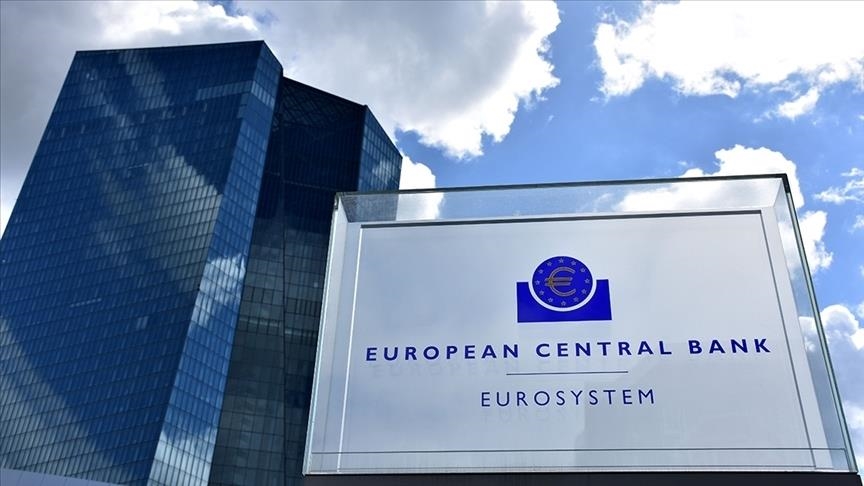ISTANBUL
The European Central Bank (ECB) may cut interest rates this week amid growing recession concerns tied to US tariffs, declining inflation, and the euro’s appreciation, experts told Anadolu.
Peter Vanden Houte, chief economist at ING, said the ECB had hinted at a pause in rate cuts last month. However, US tariffs – which he said could “easily shave off 0.3 percentage points from ECB growth” – have shifted the economic outlook.
Houte noted that the eurozone economy’s growth is likely to see a recession in the second and third quarters of the year.
“At the same time, the fear of a worldwide growth deceleration on the back of the trade war has pushed down energy prices, which will also have a downward impact on eurozone inflation,” he said. “Therefore, we believe that the ECB is likely to cut short rates again with 25 basis points.”
Hadrien Camatte, senior economist at Natixis, said the ECB may cut all three key interest rates at its meeting Thursday.
“The disinflation process remains well on track, notably with a significant easing of inflation in services. Trump’s tariffs and the uncertainties around them pose clear risks to the growth outlook,” he said.
“The impact on inflation is much more uncertain, depending notably on potential retaliation measures from the EU and supply chain disruptions, but medium-run effects remain disinflationary.”
Camatte added that another 25 basis-point cut could follow in June.
“In the short term, the decrease in oil prices and the appreciation of the euro give some room for maneuver, and monetary policy remains in restrictive territory – although meaningfully less than in the past,” he said.
Bas van Geffen, a senior macro strategist at Rabobank, also said the confusion caused by Trump’s tariffs could lead to a 25 basis-point cut, as short-term uncertainties remain a source of concern.
“If trade negotiations fail, we could see the ECB resorting to a combination of rate cuts and easing that targets longer-term rates,” he said.

